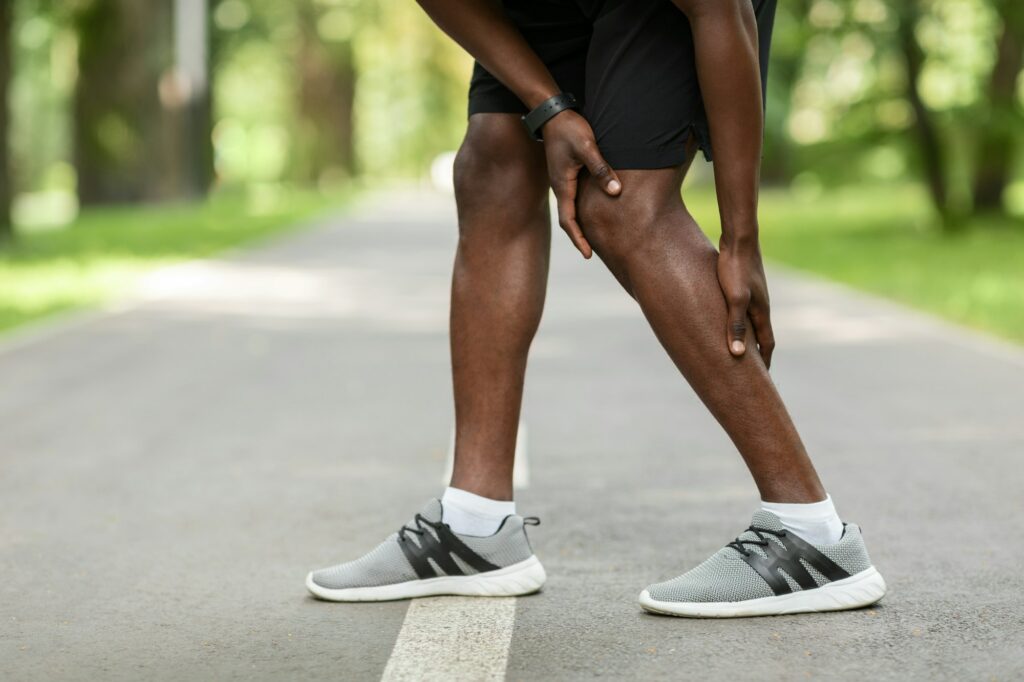Muscle cramps can strike suddenly, disrupting your day with an intense, involuntary contraction that can range from mildly uncomfortable to excruciatingly painful. Whether you’re an athlete, an active individual, or just someone going about their daily routine, muscle cramps can affect anyone. Understanding the causes behind these cramps is crucial to preventing and managing them effectively.
What Causes Muscle Cramps? Muscle cramps occur when a muscle involuntarily contracts and does not relax. While the exact cause can vary depending on the individual and situation, several common factors contribute to muscle cramps:
- Dehydration: One of the primary triggers for muscle cramps is dehydration. When you’re low on fluids, your body’s electrolyte balance is disrupted, affecting muscle function and increasing the likelihood of cramping.
- Electrolyte Imbalance: Electrolytes, such as potassium, calcium, magnesium, and sodium, play crucial roles in muscle contraction and relaxation. Imbalances in these electrolytes, often due to inadequate intake or excessive loss through sweating, can lead to muscle cramps.
- Overexertion: Intense physical activity or overexertion can strain muscles, leading to fatigue and increased susceptibility to cramping. This is particularly common in athletes or individuals engaging in prolonged or strenuous exercise without adequate conditioning or rest.
- Poor Blood Circulation: Conditions that impair blood flow to muscles, such as peripheral artery disease or sitting in a cramped position for extended periods, can trigger cramps due to reduced oxygen and nutrient supply to the muscles.
- Muscle Fatigue: Muscles that are tired or fatigued are more prone to cramping. This fatigue can result from repetitive motions, inadequate rest, or poor muscle conditioning.
- Nerve Compression: Nerve compression or irritation, often due to conditions like herniated discs or pinched nerves, can send abnormal signals to the muscles, causing them to cramp.
- Medications and Medical Conditions: Certain medications, such as diuretics or statins, can increase the risk of muscle cramps as a side effect. Additionally, underlying medical conditions like diabetes, thyroid disorders, or neurological diseases may predispose individuals to cramping.
While muscle cramps can be uncomfortable and disruptive, several strategies can help alleviate symptoms and reduce the frequency of cramping:
- Stay Hydrated: Drink plenty of fluids, particularly water, throughout the day to maintain adequate hydration and electrolyte balance, especially during periods of increased physical activity or in hot weather.
- Electrolyte Replenishment: Consume foods rich in electrolytes, such as bananas (potassium), leafy greens (magnesium), and nuts (calcium), or consider electrolyte supplements if needed, particularly after intense workouts or prolonged sweating.
- Stretching and Warm-Up: Incorporate regular stretching exercises into your routine to improve flexibility and prevent muscle tightness. Prioritize warming up before engaging in vigorous physical activity to prepare your muscles and reduce the risk of cramping.
- Proper Nutrition: Ensure a balanced diet rich in vitamins, minerals, and nutrients to support muscle health and function. Maintain adequate intake of protein, carbohydrates, and fats, as deficiencies in these macronutrients can contribute to muscle cramps.
- Gradual Progression: Gradually increase the intensity and duration of your workouts to allow your muscles to adapt and strengthen over time. Avoid sudden spikes in activity that may strain your muscles and increase the risk of cramping.
- Massage and Heat Therapy: Massage therapy can help alleviate muscle tension and improve circulation, reducing the likelihood of cramping. Applying heat to tight or cramped muscles can also promote relaxation and relieve discomfort.
- Medical Evaluation: If you experience frequent or severe muscle cramps despite following preventive measures, consult a healthcare professional to rule out any underlying medical conditions or medication-related issues that may be contributing to your symptoms.
Muscle cramps are a common occurrence that can stem from various factors, including dehydration, electrolyte imbalances, overexertion, and underlying medical conditions. By understanding the causes behind these cramps and implementing preventive strategies such as staying hydrated, maintaining proper nutrition, and incorporating regular stretching, you can reduce the frequency and severity of muscle cramps, allowing you to enjoy a more active and comfortable lifestyle. If cramps persist or worsen, seeking medical advice is advisable to address any underlying concerns and ensure optimal muscle health and function.




